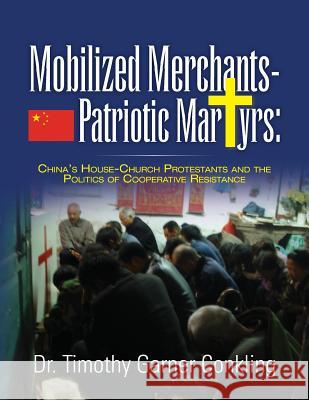Mobilized Merchants-Patriotic Martyrs: China's House-Church Protestants and the Politics of Cooperative Resistance » książka
Mobilized Merchants-Patriotic Martyrs: China's House-Church Protestants and the Politics of Cooperative Resistance
ISBN-13: 9781502331946 / Angielski / Miękka / 2014 / 334 str.
Mobilized Merchants-Patriotic Martyrs: China's House-Church Protestants and the Politics of Cooperative Resistance
ISBN-13: 9781502331946 / Angielski / Miękka / 2014 / 334 str.
(netto: 91,73 VAT: 5%)
Najniższa cena z 30 dni: 95,52
ok. 16-18 dni roboczych.
Darmowa dostawa!
In this illuminating study, Dr. Timothy Garner Conkling addresses five foundational questions about the PRC house-church movement. How did the Protestant house-church movement develop? What factors contribute to its rapid growth? Why are house-church Christians persecuted by the government? What strategies of resistance are mobilized by house-church Christians in response? What role does the international community have in pressuring the PRC to expand the boundaries of religious freedom? Motivated by a historical, evangelical theology, China's house-church Protestants balance patriotic allegiance to their government with conscientious objection to the laws and regulations that threaten its growth. Branded as "evil-cultists" and persecuted by local, provincial, and national authorities, China's house-church Protestants respond with a strategy of cooperative resistance that includes submission and cooperative respect, yet organized and international pressure and appeal. Through an extensive analysis of three prominent house-church networks; the China Gospel Fellowship, the South China Church, and the allied house-churches of Wenzhou, Dr. Conkling explains why the PRC government labels house-churches as cults and why house-church Protestants have opted for cooperative resistance over-against revolt or violence as a response. This book informs religious believers interested in the growth of the house-church movement, political analysts who seek to better understand church-State relations in the PRC, and international sympathizers who want to cooperate with house-church Protestants to expand the boundaries of religious freedom in the PRC.
Zawartość książki może nie spełniać oczekiwań – reklamacje nie obejmują treści, która mogła nie być redakcyjnie ani merytorycznie opracowana.











